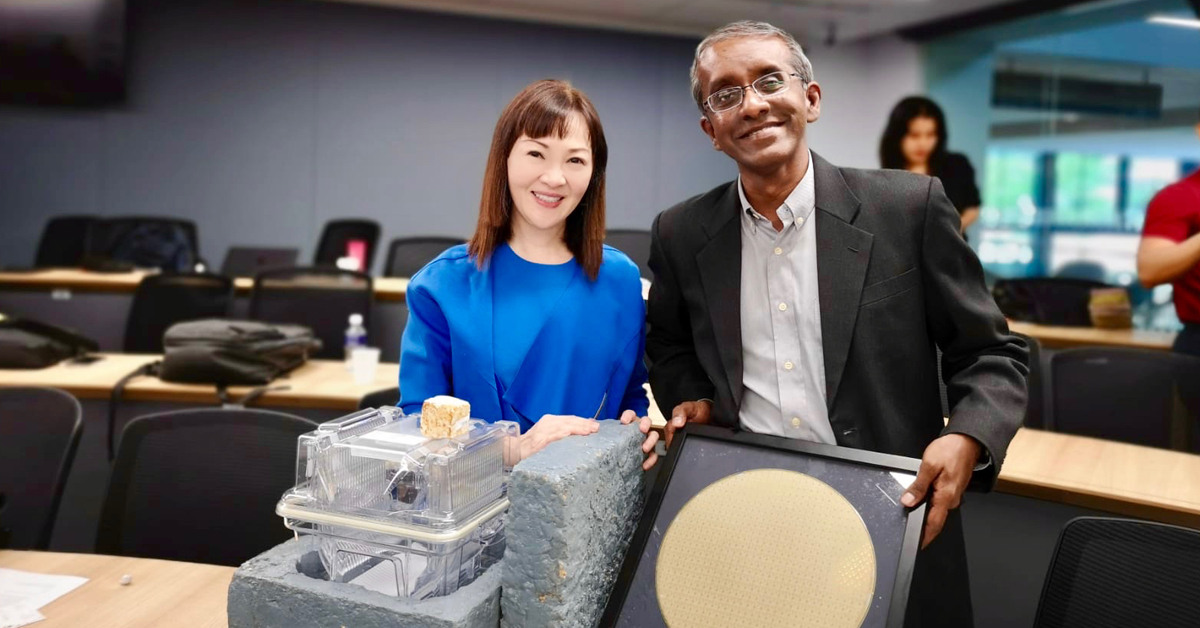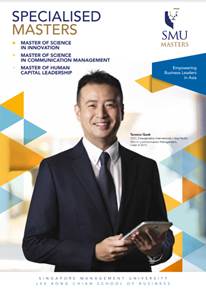
Every day, we simply toss out things we no longer need, or indulge in an endless cycle of acquiring the next trending gadget or accessory, giving little thought to the impact our actions have on the environment. In fact, the transportation of consumer products not only affects our carbon footprint, but also the depletion of natural resources used in creating protective packaging.
“[Traditional cardboard boxes] can only be used up to six times max and come in fixed sizes. Corrugated cardboard generates a lot of waste as it would also contain excessive padding like styrofoam balls, rolls of paper or bubble wrap, to prevent movement and potential damage to the product.”
The alarming growth of landfills and trend of conspicuous consumption has inspired Alterpacks, a MSc in Innovation (MI) Capstone project started by Karen Cheah, who spent over 18 years in the media industry heading up creative strategy, business development and marketing communications, and Merwin Wilfred, who has over 20 years’ experience in logistics and supply chain management. Their goal: To develop bespoke packaging to help reduce corrugated cardboard waste.
A requirement for the SMU Master of Science in Innovation (MI) programme, the Capstone Project requires students to integrate the innovation skills they have acquired from the programme to validate and materialise a new business idea. Under the guidance of SMU faculty and a venture capitalist who is co-teaching the Capstone Project, Karen came up with the idea of developing a biodegradable, yet durable plant-based material alternative to corrugated cardboard.
“Due to the high wastage of materials associated with conventional packaging, we aim to create bespoke packaging solutions that are tailormade for your product, in the form of biodegradable boxes that can be reused,” says Karen Cheah.
Discovering a niche
But a good idea is worth nothing until you take action.
As such, Karen and Merwin turned to a team of researchers who could help develop the prototype, and found two researchers at ETH Zurich, Dr Nazanin Saeidi, a senior PhD researcher on alternative construction materials, and Dr Alireza Javadian, a Project Coordinator and Senior Researcher at Future Cities, who could assist them in developing the prototype for Alterpacks. However, they faced a glitch: While developing the prototype with the researchers, they encountered a major manufacturing challenge.
“The material had shrunk, and the box was unable to fit the wafer boat that it [was] supposed to protect. The cover also didn’t fit,” says Karen.
The duo had imported a sample close to the material currently used, from a company in the US that had already commercialised similar products.
“But it was flaky and attracted booklice in our tropical climate,” noted the entrepreneur.
“When I contacted them, they informed me that that was the best they could do. And that was great news for me, because I knew I could create a superior product for commercialisation.”
Inspired by the newfound gap in the market, the students and researchers continued working on the prototype for six weeks. After the completion of their first prototype, the next stage would be to test it against traditional cardboard, and to examine what other advantages it would have over corrugated cardboard.
A material like no other
Using a patented concept, agricultural waste is harvested by the researchers to create a biodegradable material that can range in consistency — from as hard as plywood to as soft as sponge, or as crumbly as Styrofoam; and take on the appearance of corrugated cardboard or plywood. And depending on the consistency can be molded to specific shapes and sizes. Similar material produced has been tested to be G-shock and a fire retardant.
Initially, the two had intended for AlterPacks to provide tailored packaging solutions for the semiconductor industry. However, feedback from the expert panel of the MI programme made Karen reflect upon pivoting the market potential of her business concept.
“For AlterPacks, we are aiming to start with sectors that require packaging for fragile, high value items. I have received commercial requests from different industries and am exploring how the new packaging we are working on can best fit their purpose,” says Karen.
At this point of the start-up, what I am aiming for is to start small, provide the product to the sectors that have real commercial interest, and continuously test and adapt as we move verticals.”
Now, Karen runs the day-to-day operations of the company with a researcher, while Merwin is currently serving as the External Advisor for AlterPacks. Together, they are ready to carry on their revolution for greener materials and eco-friendly packaging across industries and borders.
Speak to our Admissions Advisors
Lee Kong Chian School of Business
Postgraduate Admissions
Singapore Management University
Level 4, Postgraduate Programmes Office
50 Stamford Road, Singapore 178899
Tel: +65 6828 0882
